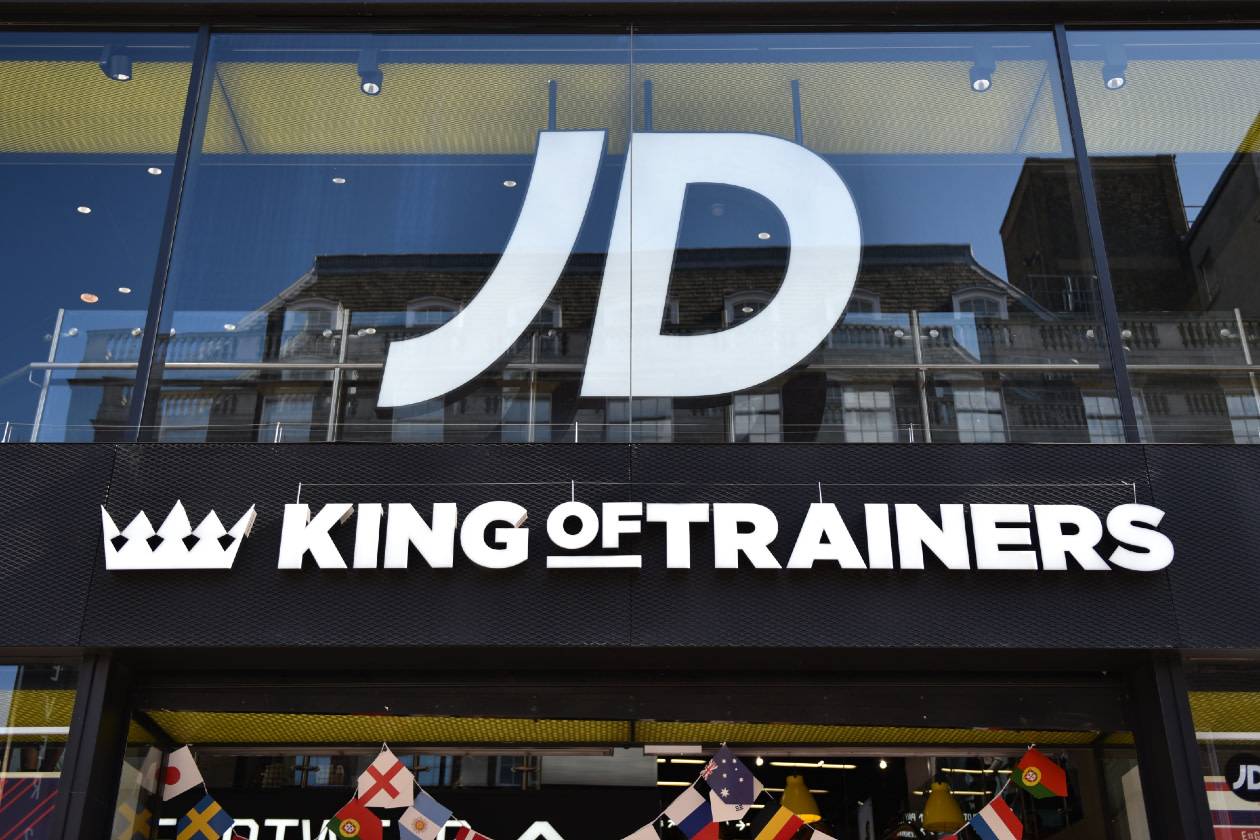JD Sports reported third-quarter sales of £3.0bn, up 8.1% ignoring exchange rates, reflecting the positive impact of recent acquisitions. On a like-for-like basis, sales fell by 1.7% as all regions except Asia Pacific posted declines.
JD Sports cautioned that recent macroeconomic and consumer data point have shown weakness ahead of its peak trading period in the fourth quarter. As a result, full-year underlying pre-tax profit guidance has been downgraded from £878mn to around £853mn.
The group remains on track to generate positive free cash flow and complete £200mn of share buybacks.
The shares fell by 1.3% in early trading.
Our view
JD Sports' third-quarter performance was largely as expected, with sales trends improving relative to the first half. But management issued caution ahead of its upcoming peak trading season, with weak macroeconomic and consumer data points causing the group to lower its full-year profit expectations.
Trading across Europe and the UK remains weak, especially in the latter. We remain cautious about the outlook for the UK, with recent changes to employer taxes and minimum wages bringing a handful of extra costs and challenges.
The US has been a major pain point in recent times due to a combination of a tough macroenvironment, product launch delays and heavy discounting by peers. JD’s been holding firmer on pricing than competitors, who have leaned into more promotional activity to help clear stock. While like-for-like sales are still in negative territory, there are early signs that trends across the pond are improving.
Acquisitions in the US and France have massively expanded the group’s footprint. The focus is now on converting them to the JD brand, and leveraging the cost efficiencies this increased scale can bring is a key part of the plan. While early progress on this front looks promising, there’s still a long road ahead.
The Hibbett acquisition means that the US is now JD Sports’ largest region by sales (H1: 39%). Despite this, the direct impact of tariffs on its operations isn’t expected to be material. We’re keeping a close eye on the indirect impact of tariffs, which could ultimately weigh on consumers’ spending power. Given that JD sells discretionary items, if the economic outlook deteriorates, JD is likely to suffer more than some other areas of retail.
Retail data points remain fairly soft, leading the group to lower its full-year underlying pre-tax profit expectations to around £853mn, pointing to a decline of around 8%. While that’s disappointing, we still think that the longer-term opportunity looks favourable given its strong market position.
Looking past the near-term uncertainty, we’re pleased with the change of focus from expansion to squeezing the most out of its store footprint. We think this is the right approach, and it should strengthen the balance sheet and lead to increased shareholder payouts, although there are no guarantees.
The challenges look priced into the current valuation, which sits well below the long-run average, offering both upside potential and some downside protection. We think this could be an attractive entry point for potential long-term investors. However, there are plenty of challenges in the near term, including tariff uncertainty and weak consumer sentiment, so be prepared for a long and bumpy ride.
Environmental, social and governance (ESG) risk
The retail industry is low/medium in terms of ESG risk but varies by subsector. Online retailers are the most exposed, as are companies based in the Asia-Pacific region. The growing demand for transparency and accountability means human rights and environmental risks within supply chains have become a key risk driver. The quality and safety of products as well as their impact on society and the environment are also important considerations.
According to Sustainalytics, JD Sports’ management of ESG risk is strong.
The group’s environmental policy is strong and executive remuneration is explicitly linked to sustainability performance targets. There is also an adequate whistleblower policy in place. However, ESG reporting and disclosures fall short of best practice.
JD Sports key facts
All ratios are sourced from LSEG Datastream, based on previous day’s closing values. Please remember yields are variable and not a reliable indicator of future income. Keep in mind key figures shouldn’t be looked at on their own – it’s important to understand the big picture.
This article is original Hargreaves Lansdown content, published by Hargreaves Lansdown. It was correct as at the date of publication, and our views may have changed since then. Unless otherwise stated estimates, including prospective yields, are a consensus of analyst forecasts provided by LSEG. These estimates are not a reliable indicator of future performance. Yields are variable and not guaranteed. Investments rise and fall in value so investors could make a loss.
This article is not advice or a recommendation to buy, sell or hold any investment. No view is given on the present or future value or price of any investment, and investors should form their own view on any proposed investment.


